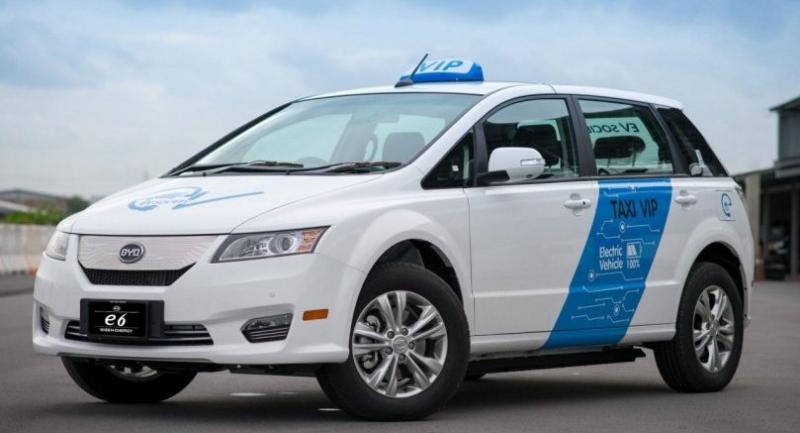Electric-powered taxis to blaze trail after Bt2 bn investment

EV Society Co Ltd has invested about Bt2 billion to get a taxi service on the road from next month with an all-electric vehicle fleet.
The company claims it will be the first to run a taxi service with electric vehicles (EVs) in Thailand. It has 101 vehicles ready for the service launch on September 9.
After signing a cooperation agreement to promote electric cars from Chinese manufacturer BYD, Sorayut Phettakul, director of EV Society Co Ltd, said that the company expects lower administrative costs through the use of electric vehicles (EVs), given the absence of petroleum-based fuels.
Sorayut said corporate investment in EVs was in line with the government’s attempt to push Thailand towards the state’s Energy 4.0 vision.
In the initial phase, the company will start with the 101 taxis and invest about Bt200 million to establish a maintenance and repair centre and battery charging points in the areas around Suvarnabhumi International Airport.
Next year, the number of the company’s electric taxis will reach 1,000 and it will join with Energy Absolute (EA) to add charging points at 30 Susco service stations under the cooperation agreement.
Apichat Leenutaphong, managing director of electric vehicle importer Rizen Energy Co Ltd, said that the company started importing EVs last year, drawn to the growth potential.
Using EVs will see an average maintenance and repair cost of Bt0.90 per kilometre, compared with the Bt1.50 per kilometre for a regular car, he said. The fuel cost of EVs averages Bt0.70 per kilometre, against the Bt2.50 per kilometre for a regular car.
Apichat predicts that major carmakers will start making more EVs in the next four to five years and that Thais will respond well to the 50 per cent-plus fuel savings and likely tax support.
Liu Xueliang, general manager of the BYD Asia Pacific auto sales division, said that Thailand is its major market in Asean and if demand rises consistently, the Chinese carmaker would consider setting up a plant in the country.
The Metropolitan Electricity Authority has already imported BYD’s electric vehicles. The Chinese carmaker is in discussions with Loxley to bid for a Bangkok Mass Transit Authority project that would see the authority buy electric buses.
Sanit Promwong, director-general of Department of Land Transport (DLT), said after the signing that the department has a policy to promote the use of public cars running on alternative energy sources, while also seeking to upgrade safety standards.
Under the private-sector cooperation, BYD e6 vehicles will be used as taxis and the fares will start at Bt150 for the first two kilometres, with Bt16 per kilometre thereafter. Passengers can pay with credit cards or cash.
Yossapong Laoonual, president of the Electric Vehicle Association of Thailand, said: “This cooperation is believed to help support the Ministry of Energy’s plan, which targets having 1.2 million EVs in 2036. It will also help the public sector to stimulate the use of EVs, whose prices are relatively high, with tax incentives.”
